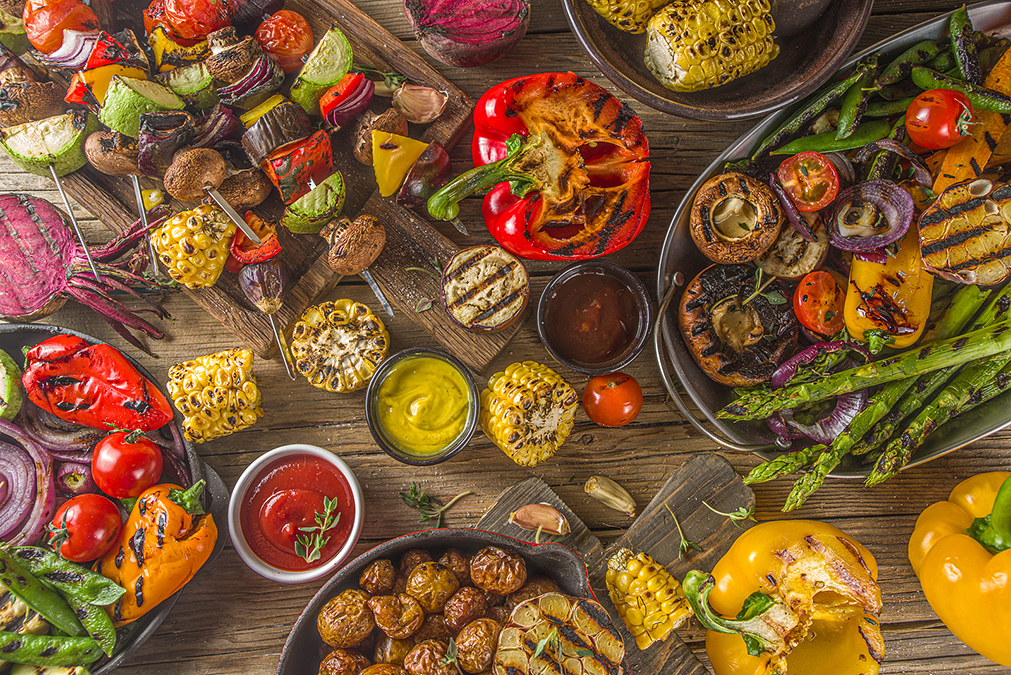 Numerous studies have found this diet to be extremely beneficial for various health issues, including cardiovascular health, diabetes, and more.
Numerous studies have found this diet to be extremely beneficial for various health issues, including cardiovascular health, diabetes, and more.
But a new study published in the journal BMC Medicine reveals that it’s disastrous when it comes to osteoporosis.
The researchers used data already collected by the European Prospective Investigation into Cancer and Nutrition (EPIC). Tens of thousands of British participants were enrolled in the study between 1993 and 2001, with a follow-up in 2010.
EPIC collected its participants’ dietary and health information at the beginning and again at the end of the study period. The authors of the new study divided participants into four dietary groups: meat-eaters, pescatarians (eggs, dairy, and fish, but no other meat), vegetarians (eggs, dairy, and no meat), and vegans (no animal products at all).
They also collected information regarding the total number of bone fractures and bone-specific fractures over the approximately 17-year follow-up period. They found 3,941 total fractures; 566 arm, 889 wrist, 945 hip, 366 leg, and 520 ankle fractures; and 467 fractures in other main bones, like ribs and vertebrae.
After crunching the numbers, they found that vegans, vegetarians, and pescatarians had a higher risk of hip fractures than meat-eaters.
Compared with meat-eaters, the risk of hip fracture was 26% higher in pescatarians, 25% higher in vegetarians, and 2.31 times higher in vegans.
This means 2.9, 2.9, and 14.9 extra fractures per 1,000 people over a ten-year period for the three groups, respectively.
Compared with meat-eaters, vegans also had a 43% greater risk of total fractures, a 59% higher risk of other main bone fractures, like ribs and vertebrae, and a 2.05 times higher risk of leg fractures.
The associations between these diets and bone fractures were weaker after the scientists accounted for body mass index and calcium and protein intake, but they were still statistically significant.
Vegans in the study had a lower body mass index, lower fat storage, and lower muscle mass to serve as cushioning during falls than meat-eaters, which explains why the associations weakened when body mass index was added into the analysis.
Moreover, previous studies have linked a higher body mass index with higher estrogen production and higher bone mineral density, which could also explain why vegans may have a problem here.
On top of calcium and protein, other nutrients, like vitamin K, phosphorous, and magnesium, are equally important for bone health.
This does not mean that you suddenly have to start eating meat if you’re a vegetarian or put on weight if you’re slim. But it does mean that you must do sufficient research to ensure that your diet includes enough important nutrients.
In other words, ditching meat and replacing it with bread and pasta is a bad idea.
Legumes, soy, nuts, seeds, and whole grains can give you sufficient protein, while broccoli, spinach, soy, sesame seeds, tahini, berries, oranges, and nuts can help with the calcium.

 Overcoming IBD
Overcoming IBD Multiple Sclerosis
Multiple Sclerosis Banishing Bronchitis
Banishing Bronchitis Gum Disease Gone
Gum Disease Gone Overcoming Onychomycosis
Overcoming Onychomycosis Neuropathy No More
Neuropathy No More The Prostate Protocol
The Prostate Protocol Brain Booster
Brain Booster
 Ironbound
Ironbound
 Solution for Shingles
Solution for Shingles
 The Bone Density Solution
The Bone Density Solution
 The Ultimate Healing Protocol
The Ultimate Healing Protocol
 The Parkinson's Protocol
The Parkinson's Protocol
 The Chronic Kidney Disease Solution
The Chronic Kidney Disease Solution
 Overthrowing Anxiety
Overthrowing Anxiety The Fatty Liver Solution
The Fatty Liver Solution The Hypothyroidism Solution
The Hypothyroidism Solution
 The End of Gout
The End of Gout The Blood Pressure Program
The Blood Pressure Program
 The Oxigized Cholesterol Strategy
The Oxigized Cholesterol Strategy
 Stop Snoring And Sleep Apnea Program
Stop Snoring And Sleep Apnea Program
 The Arthritis Strategy
The Arthritis Strategy The Vertigo & Dizziness Program
The Vertigo & Dizziness Program The 3-Step Diabetes Strategy
The 3-Step Diabetes Strategy Hemorrhoids Healing Protocol
Hemorrhoids Healing Protocol The Erectile Dysfunction Master
The Erectile Dysfunction Master Weight Loss Breeze
Weight Loss Breeze The IBS Program
The IBS Program The Insomnia Program
The Insomnia Program The Migraine and Headache Program
The Migraine and Headache Program The Neck Pain Solution
The Neck Pain Solution The Menopause Solution
The Menopause Solution The Ejaculation Master
The Ejaculation Master The TMJ Solution
The TMJ Solution The Acid Reflux Solution
The Acid Reflux Solution The Fibromyalgia Solution
The Fibromyalgia Solution The Psoriasis Strategy
The Psoriasis Strategy